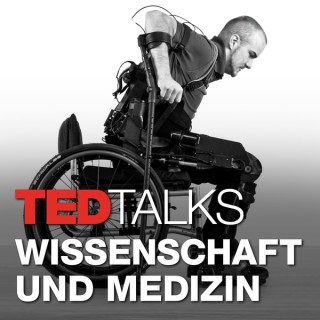Podcast appearances and mentions of ilona stengel
- 8PODCASTS
- 8EPISODES
- 20mAVG DURATION
- ?INFREQUENT EPISODES
- Jul 7, 2023LATEST
POPULARITY
Latest podcast episodes about ilona stengel
2554. 101 Academic Words Reference from "Ilona Stengel: The role of human emotions in science and research | TED Talk"
This podcast is a commentary and does not contain any copyrighted material of the reference source. We strongly recommend accessing/buying the reference source at the same time. ■Reference Source https://www.ted.com/talks/ilona_stengel_the_role_of_human_emotions_in_science_and_research ■Post on this topic (You can get FREE learning materials!) https://englist.me/101-academic-words-reference-from-ilona-stengel-the-role-of-human-emotions-in-science-and-research-ted-talk/ ■Youtube Video https://youtu.be/mM2VRoo1peI (All Words) https://youtu.be/4JAt6U-zu_g (Advanced Words) https://youtu.be/rfUgn6p6FTY (Quick Look) ■Top Page for Further Materials https://englist.me/ ■SNS (Please follow!)
The role of human emotions in science and research | Illona Stengel
Do human emotions have a role to play in science and research? Material researcher Ilona Stengel suggests that instead of opposing each other, emotions and logic complement and reinforce each other. She shares a case study on how properly using emotions (like the empowering feeling of being dedicated to something meaningful) can boost teamwork and personal development -- and catalyze scientific breakthroughs and innovation. Hosted on Acast. See acast.com/privacy for more information.
Le rôle des émotions humaines en sciences et en recherche | Ilona Stengel
Les émotions humaines ont-elles un rôle à jouer en sciences et en recherche ? La chercheuse en matériaux Ilona Stengel suggère qu'au lieu de s'opposer, les émotions et la logique se complètent et se renforcent. Elle partage un cas d'étude sur la façon d'utiliser correctement les émotions (comme le sentiment dynamisant de se consacrer à quelque chose d'important) peut stimuler le travail en équipe, le développement personnel et servir de catalyseur à des avancées et innovations scientifiques.
The role of human emotions in science and research | Ilona Stengel
Do human emotions have a role to play in science and research? Material researcher Ilona Stengel suggests that instead of opposing each other, emotions and logic complement and reinforce each other. She shares a case study on how properly using emotions (like the empowering feeling of being dedicated to something meaningful) can boost teamwork and personal development -- and catalyze scientific breakthroughs and innovation.
과학 및 연구 분야에서 인간의 감정이 하는 역할은 무엇일까요? 재료 연구원 얼로나 스텐걸(Ilona Stengel)은 감정과 논리는 대립의 개념이 아니라 서로를 보완해 주고 함께 발전하는 관계라고 말합니다. 의미있는 일에 헌신한다는 사명감과 같은 감정의 적절한 활용이 어떻게 개인적 성장과 단체정신을 북돋아 주고, 과학의 획기적인 발전과 혁신을 촉진시키는지 그녀의 사례 연구를 통해 알아봅니다.
The role of human emotions in science and research | Ilona Stengel
Do human emotions have a role to play in science and research? Material researcher Ilona Stengel suggests that instead of opposing each other, emotions and logic complement and reinforce each other. She shares a case study on how properly using emotions (like the empowering feeling of being dedicated to something meaningful) can boost teamwork and personal development -- and catalyze scientific breakthroughs and innovation.
O papel das emoções humanas na ciência e pesquisa | Ilona Stengel
As emoções humanas têm um papel a desempenhar na ciência e na pesquisa? A pesquisadora de materiais Ilona Stengel sugere que, em vez de se oporem umas às outras, as emoções e a lógica se complementam e se reforçam mutuamente. Ela compartilha um estudo de caso sobre como usar adequadamente as emoções (como a sensação de poder se dedicar a algo significativo) pode impulsionar o trabalho em equipe e o desenvolvimento pessoal - e catalisar descobertas científicas e inovações.
El rol de las emociones humanas en la ciencia y la investigación | Ilona Stengel
¿Desempeñan las emociones humanas un rol en la ciencia y la investigación? La investigadora de materiales Ilona Stengel sugiere que, en vez de oponerse entre sí, las emociones y la lógica se complementan y refuerzan mutuamente. Comparte un caso de estudio sobre cómo el uso adecuado de las emociones (como el sentimiento de empoderamiento al estar dedicado a algo significativo) pueden estimular el trabajo en equipo y el desarrollo personal además de catalizar los avances científicos y la innovación.











